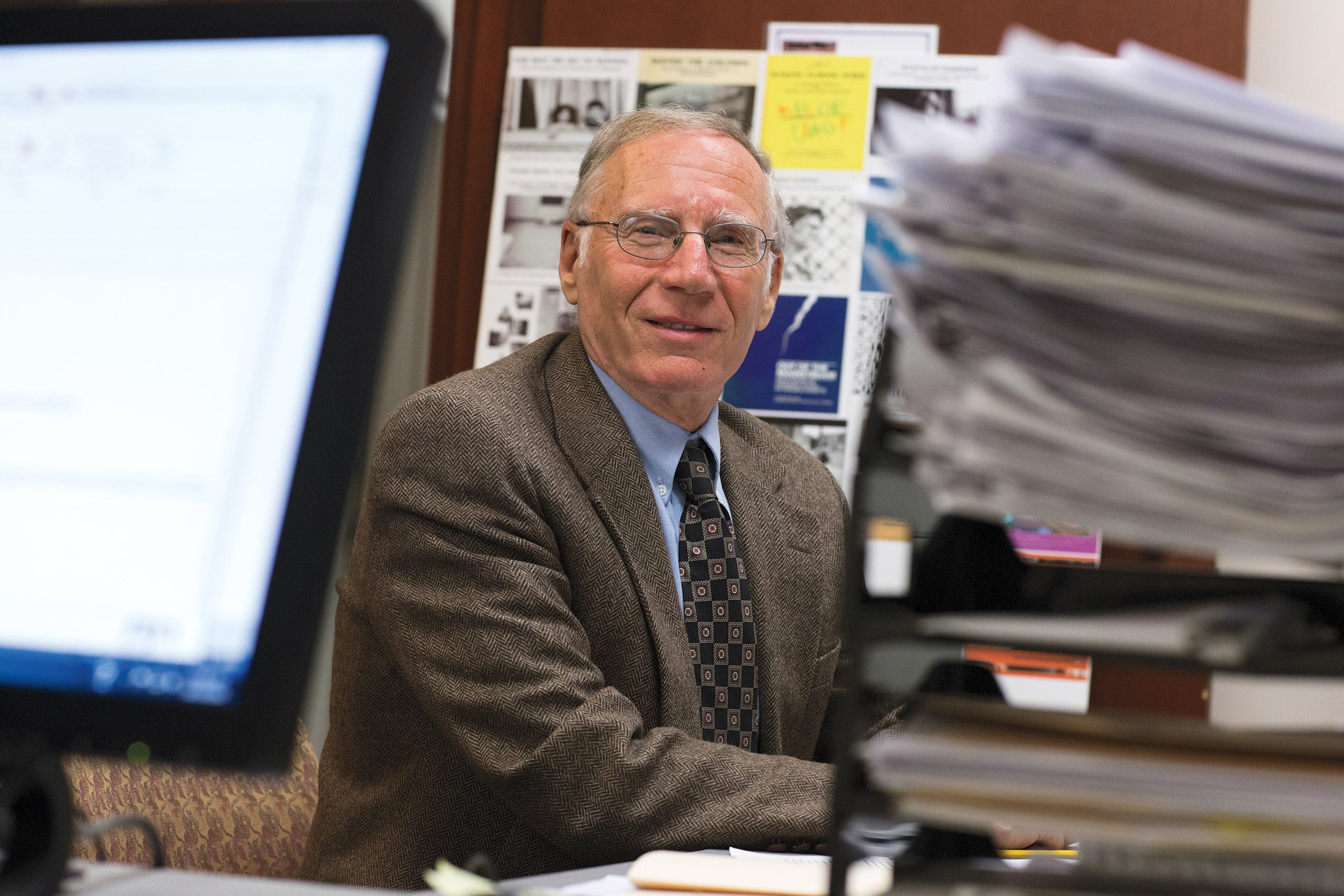Twenty-two years. That’s how long Tom Mela ’68 and his colleagues fought the Boston Public Schools in a class-action lawsuit over huge backlogs in providing special education to students with disabilities.
Mela, now managing attorney and director of the Children’s Law Support Project at the nonprofit Massachusetts Advocates for Children, has since devoted most of his career to school discipline and special-education law.
He says he fell into it by accident. After teaching for a year at Newton North High School in suburban Boston when he finished law school, then practicing employment discrimination law, Mela got a call from the organization that is now Massachusetts Advocates for Children.
“They needed someone,” he remembers. “My wife had already been teaching for years, so public education was my own background and hers. And I had gone to law school knowing that I wanted to work with low-income families.”
So he took the job, and, “45 years later,” he says, “we’re still fighting that fight.”
With a few detours.
Mela also worked as general counsel for the Massachusetts Office for Children, chief attorney for the New England office of the U.S. Department of Education Office for Civil Rights, a staff attorney at the Massachusetts Law Reform Institute and co-director of the Boston University Legal Aid Program.
“I’m a kid from the ’60s, and I wanted to make a difference for low-income disadvantaged people,” he says. “Kids are at a particular disadvantage because they don’t vote. They tend to be the last considered by the politicians.”
“I’m a kid from the ’60s, and I wanted to make a difference for low-income disadvantaged people. … Kids are at a particular disadvantage because they don’t vote.”
Tom Mela
While he himself has returned to the organization where he began this work, he says, “There remain too few advocates. There are 160,000 kids [with special needs in Massachusetts], and the number of free advocates I can count on one or two hands.”
Sometimes, he says, “we have fabulous success stories.” He describes an eighth-grader in Somerville, near Boston, who was expelled, with no chance of getting an alternative education. Mela got the decision reversed, and he has since followed her trajectory to her graduation from high school.
That 22-year lawsuit in Boston resulted in a Massachusetts Supreme Judicial Court decision that found the school system in contempt and ordered small cash payouts to families of children who couldn’t get special-education services during a bus strike.
Many children and families in need of help are poor, says Mela. “And they’re up against school districts represented by counsel and special-ed directors who are sophisticated and knowledgeable, as opposed to the parent, who typically has no special-ed experience. … It’s not an even playing field.”
Wealthier families can hire lawyers or tutors or send their kids to private schools, Mela says, while, “as with everything else, the problem low-income kids find themselves in is that much worse.”
That’s why Mela and his fellow advocates—including collaborators at the HLS Education Law Clinic—have been pushing for changes in state laws, which have a more widespread impact than they can make representing clients one at a time.
Before the clinic succeeded this summer in passing the Safe and Supportive Schools act, Massachusetts Advocates for Children and others managed to change Massachusetts law so that school districts will exclude students only as a last resort and can no longer automatically deny alternative education services to those who are expelled, like the girl from Somerville—who Mela arranged to have testify to lawmakers, “and tell her story about how close she came to ending her education at age 15.”
Although he still represents families, “We can’t represent 160,000 of them,” he says. “But what we can do is try to change the laws in ways that can affect a significant number.”
